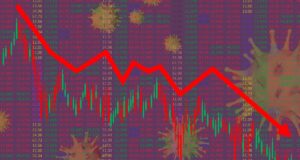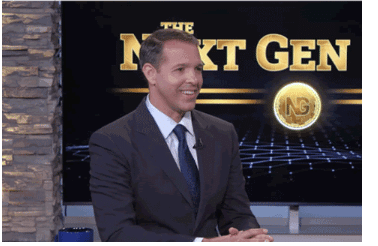Typically, when a market’s values fall by more than 20%, it’s considered a bear market, and it’s generally accompanied by an overall negative investor mood and a bleak economic outlook. Bear markets are an unfortunate but unavoidable phase of the broad financial cycle. Investors who own the finest stocks to purchase for poorly performing markets, on the other hand, can limit the damage and begin to recover.
In any case, 2022 has been a terrible year for stocks, with not much relief in sight. Bottoms are challenging to predict in real-time, and stocks can trade sideways indefinitely. If the current trend continues, investors may want to load up on the best equities they can locate. Right now, such stock decisions should emphasize durability in the face of severe downturns. Stocks with solid financials that pay dividends and stocks with growth, value, and momentum are ideal choices.
I’ve narrowed it down, so let’s look at three resilient stocks to buy during these troublesome times — experts consider these tickers to be smart portfolio picks right now:
CVS Health Corp (CVS)
CVS Health Corporation (CVS) owns its popular self-titled drugstore, a retail pharmacy chain, but CVS doesn’t solely operate pharmacies. For example, CVS-owned Caremark (a pharmacy benefits manager) and Aetna (a health insurance provider) have also been successful. It’s important to note that the healthcare industry is a traditional haven when markets fall. In this context, CVS stands out because it has a distinct defensive profile that few other sector options have. Stanley P. Goldstein and Ralph Hoagland formed CVS in 1963, and it is based in Woonsocket, Rhode Island.
Analysts laud CVS‘s business strategy, particularly for its long-term development. The stock’s minimal volatility is also reassuring to investors. CVS has already shown resilience by besting analysts’ forecasts on EPS and revenue for the last four consecutive quarters. For CVS’s latest, it beat EPS projections by 3.53% and revenue by 2.03%. CVS shows positive growth year-over-year, and its EPS and sales are expected to grow. CVS currently has a dividend yield of 2.36%, with a quarterly payout of 55 cents per share. The consensus price objective for CVS among analysts that provide 12-month estimates is 119.10, with a high of 127.00 and a low of 98.00. The median is up 27.90% from current pricing, and the experts’ consensus gives CVS a strong buy rating from which we could benefit.
General Dynamics Corp (GD)
General Dynamics Corporation (GD) is a publicly listed American aerospace and military company. It was the fifth-largest defense contractor in the United States by sales in 2019 and the sixth-largest globally. In 2020, the firm was placed No. 83 on the Fortune 100 list. Today, the firm has ten subsidiary companies operating in 45 countries. GD was established on February 21st, 1952, and is based in Reston, Virginia.
Analysts believe what puts GD ahead of the pack is its strong long-term growth expectation and potential for considerable share price gain. GD’s stock has risen 11% year to date, during a period when the S&P 500 has lost more than 14%. GD has seen some struggles regarding its earnings reports but has consistently beaten on EPS. GD most recently exceeded EPS forecasts by 3.75% and revenue by 4.12%. And Wall Street only expects further outperformance in the future. GD’s dividend yield is currently at 2.31%, with a quarterly shareholder payout of $1.26 per share owned. The consensus price target for GD from the analysts that provide 12-month predictions is 273.50, with a high estimate of 305.00 and a low of 221.00. The median forecast is up 25.62% from its most recent price, and GD comes with a robust buy rating that’s earned our consideration.
UnitedHealth Group Inc (UNH)
UnitedHealth Group Inc (UNH) is a globally managed healthcare and insurance organization that provides health care coverage, software, and data consulting services. UNH is the world’s eighth-biggest corporation by revenue, the second-largest healthcare firm by revenue, and the largest healthcare organization within the Dow Jones Index. Richard T. Burke founded UNH in January 1977, and it is headquartered in Minnetonka, Minnesota. Futile records aside, the fact remains that in downturn markets, blue-chip companies in defensive industries such as healthcare – like UNH – tend to fare better.
UNH has surpassed revenue and EPS projections for four consecutive quarters. UNH’s last report beat EPS and revenue by 2.60% and 1.75%, respectively. Shareholders should feel confident that UNH is far less volatile than the overall market, not to mention UNH’s 13 straight years of dividend increases. UNH currently has a dividend yield of 1.21%, and it comes with a quarterly payout of $1.45 per share. Economists expect UNH to deliver annual EPS growth of approximately 14% over the next three-to-five years. UNH has a price target of 595.00 among analysts that give 12-month price estimates, with a high of 632.00 and a low of 480.00, with the forecast being up 24.35% from its last price. Based on economists’ convictions, UNH has a significant buy rating and deserves its time to shine.
Read Next : “Card-Sized” Battery Set to Blow Lid off the Electric Vehicle Industry
This tech company’s new EV battery is so small and light, experts predict it may spur 1,000% growth in EV sales.
Watch this stock.







